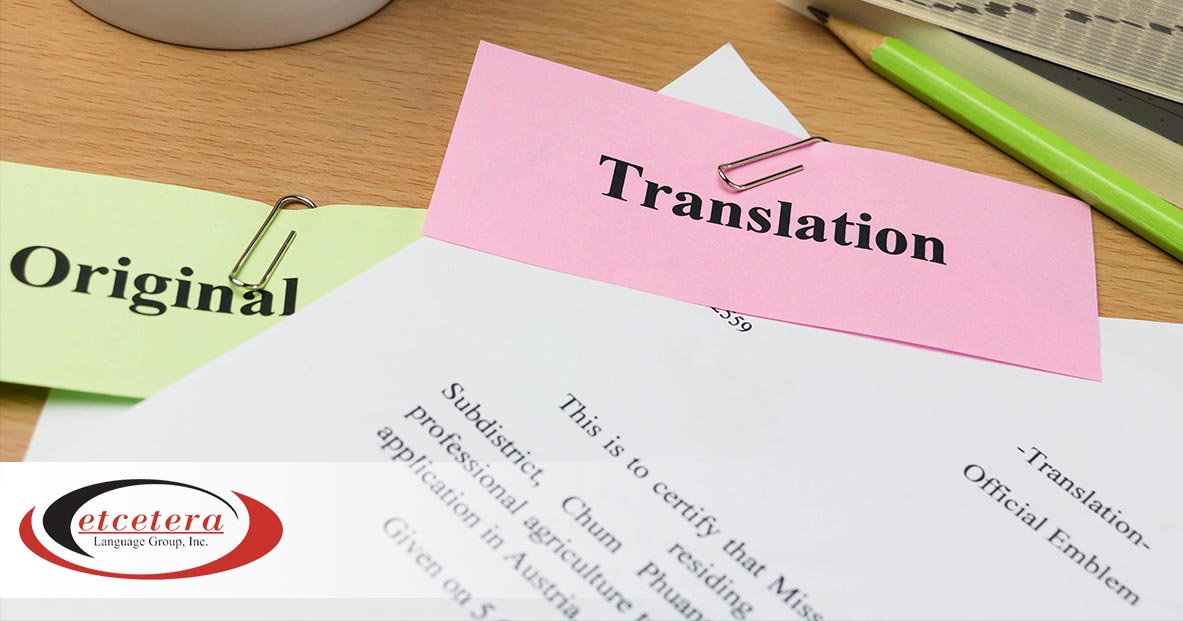Avoid Mistakes: How to Translate Legal Documents
When most people look for language translation services, they are only curious about a brief blurb or phrase and turn to Google translate or other similar free, automated tools. Where people get into real trouble is using machine translation or free browser translators in an attempt to perform a legal or professional translation. This is one of, if not the biggest mistakes a person can make when translating legal documents.
When translating legal documents, you need the help of a fully fluent reader, writer, and speaker of the language at issue. Further, you need an expert who is knowledgeable in the area of law that the legal document is concerned with. The law itself is written in a language that is different from the language it is based in. Legalese uses philosophical, logical, as well as technical form and nomenclature that distinguishes it even from the native language in which it is rendered.
But failure to use professional translation services is far from the only mistake one can make in translating legal documents. Here, we will cover all of the ways in which legal document translation can go wrong, how to avoid those mistakes, and helpful hints to improve the quality of translations.
5 Common Translation Mistakes You Need to Avoid
There are five common and sure ways to render a poor legal translation, any one of which can result in a mistranslation. Mistranslations in legal matters can lead to unfavorable judgments. They can cause a document to be made void, and they can cause the desired result of a case, petition, or motion to be delayed, denied, or delivered in an unsatisfactory manner.
Using Machine Translation
Using machine-rendered translation services is the most common and the most serious error you can make. Machine translators are useful as a novelty only. They cannot deliver a full, complete, and robust translation that takes context, dialect, and technical issues into consideration. These types of services are frequently inaccurate, and many international commercial enterprises have suffered great embarrassment after using machine translators in their advertising campaigns.
Poor Communication
For a full and complete translation that is useful and accurate requires active communication between the client and the translation service. If your translator does not know what you need the document for, where, and how, there is likely to be an error that leads to an undesirable result. Etcetera’s team is always available to answer your questions and take all of the context you have to offer.
Failure to Plan
Many people believe that a court or legal agency has a duty to translate their legal documents for them. This is not the case. In most cases, if you submit a legal document filled out in a language that is foreign to the court or government agency involved, they will simply throw it out.
Failure to Leverage Professional Help
Not getting the help of a professional legal document translation service is almost certain to deliver bad results. Many, many people have made the mistake of using an automated translator, attempted to translate word for word, or used the help of someone unqualified for the task.
Using Translation Services that Lack Legal Literacy
Translating legal documents takes literacy in the language at issue. But it also requires competence in the legal issues that are being dealt with. As mentioned above, legal language is a language all its own and any translation must be done by someone who knows the legalese and the language of the receiving agency.
Useful Tips to Translate Legal Documents
As important as the mistakes to avoid are the requirements of any complete legal translation.
Clarity
Your legal document translation must be clear to the party or parties on the receiving end. To achieve clarity, the simplest possible language should be used to avoid potential problems in interpretation. This is important in any legal document and is even more important when rendering a legal translation.
Legal Counsel
It is the case more often than not that a legal expert in the area of law at issue is brought into any legal document translation process. As mentioned, legalese in any language is like a language of its own, and only a legal professional specializing in the area of law at hand is involved in the translation process.
Terminological Familiarity
It is necessary for your translation service provider to have full and robust familiarity with the nomenclature of the legal issues at hand. This usually means leveraging the help of an attorney who speaks the language into which the translation is to be completed.
Use Case
In every language, many words and terms have more than one meaning. This is doubly so in matters of law and legalese. This is why a full, complete, and accurate legal document translation needs to be the result of a collaboration between the client, the translator, and an attorney who specializes in the area of law with which the document is concerned.
Accuracy
Naturally, the right use of the correct terms must be used. The intention of the person submitting a legal document must be communicated with precision, and the use of legal language must also be accurate.
If you have legal documents that need to be translated from one language to another, do not settle for second-best translation services. Choose a global leader in business and legal document translation services with a robust team of professional translation experts working in dozens of the most prominent global languages. get in touch today to learn more about how Etcetera can help.
More...
Categorised in: Blog






